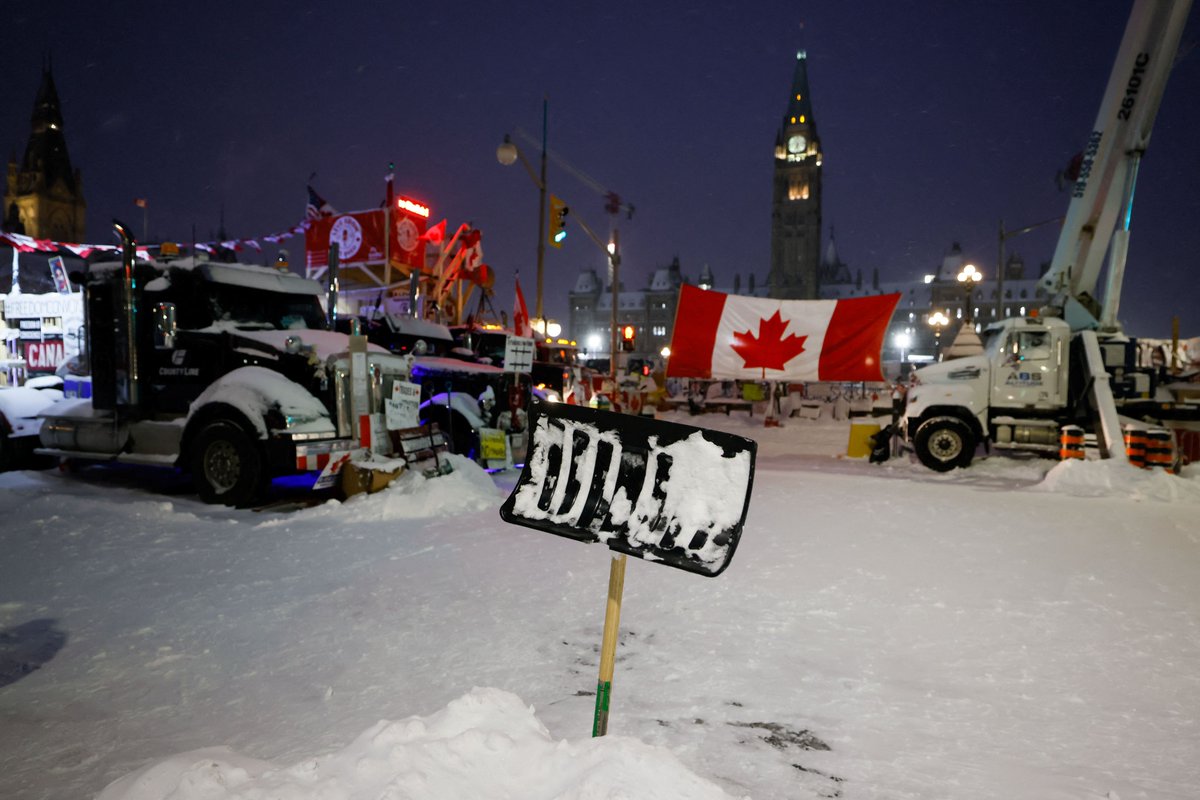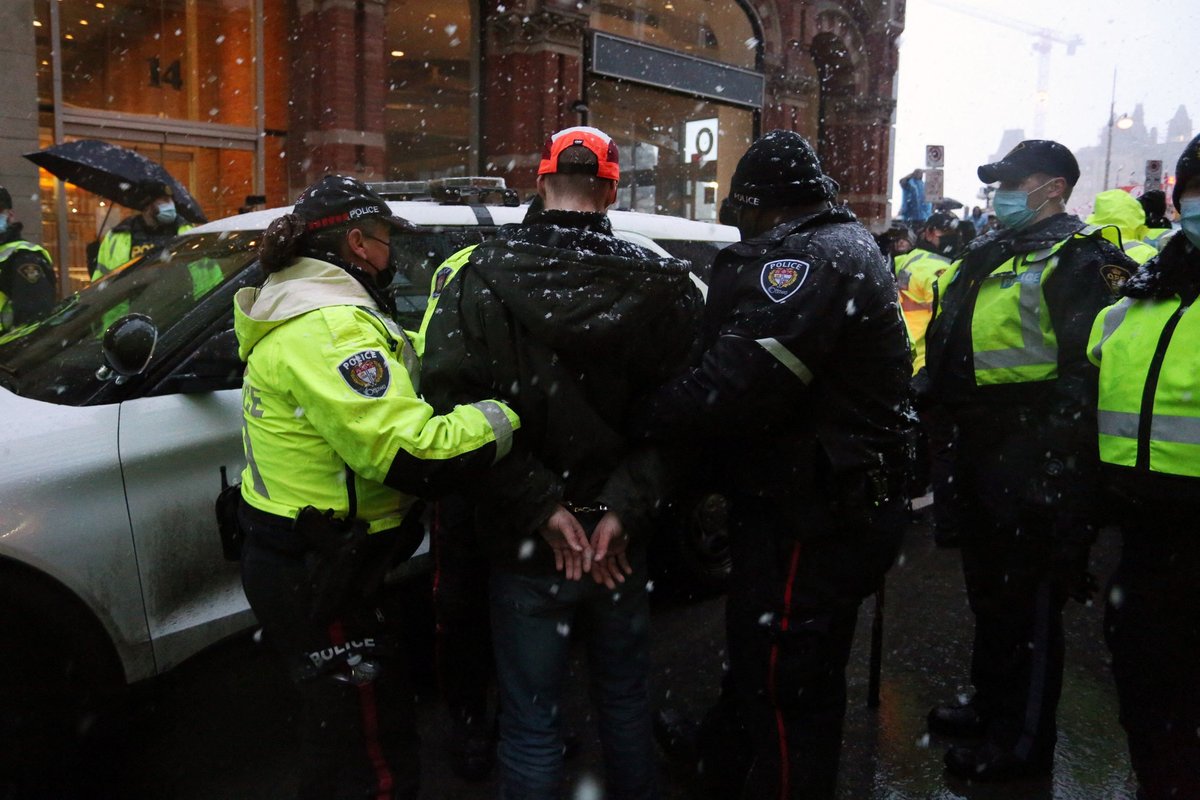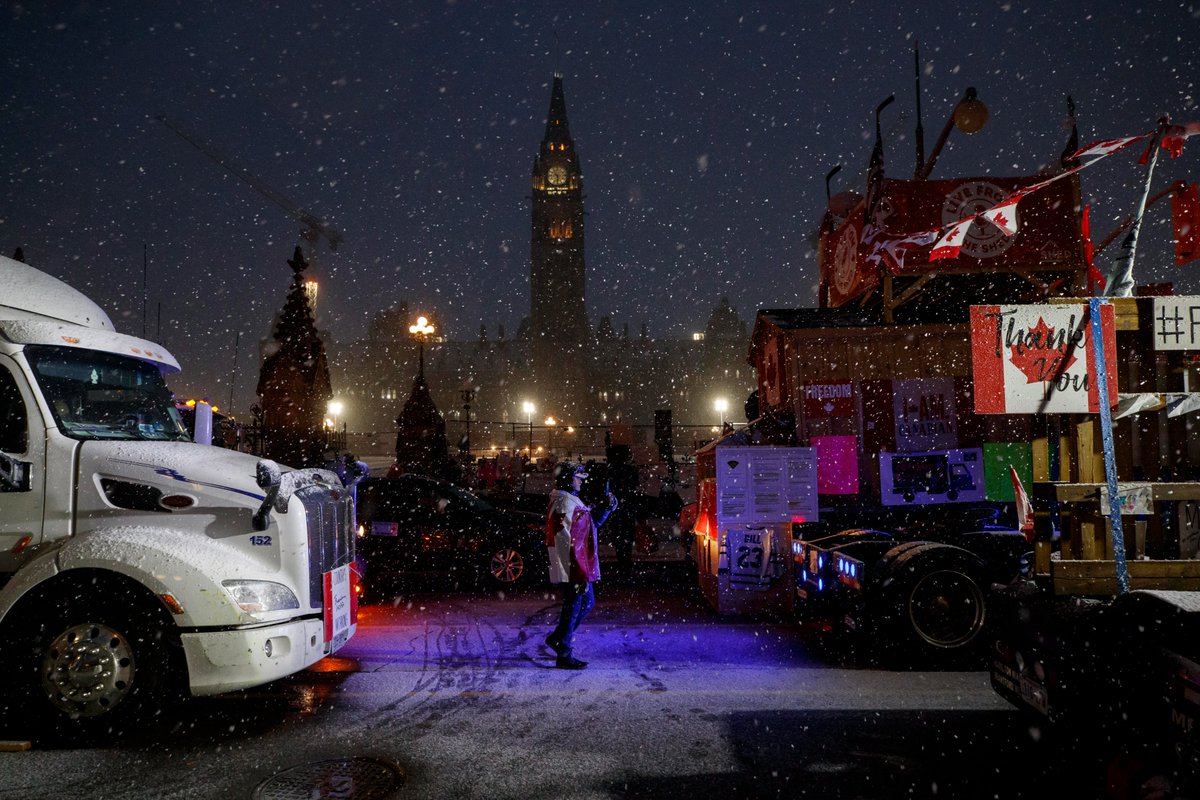
Police are about to undertake one of the largest law enforcement operations in Canadian history to seal off and clear downtown Ottawa of demonstrators and large tractor-trailer trucks that have been clogging up the streets for three weeks.
tgam.ca/3rYd9xK
tgam.ca/3rYd9xK
The multi-day operation will start on Friday and involves hundreds of riot police, mounted officers on horses and special obstacle-removal teams to deal with truckers who refuse to leave their rigs, according to a senior source.
tgam.ca/3rYd9xK
tgam.ca/3rYd9xK

The city faced a heavy overnight snowfall but the source said the operation is expected to get underway Friday morning.
tgam.ca/3rYd9xK
tgam.ca/3rYd9xK
On Friday, House of Commons Speaker @anthonyrota cancelled the House of Commons sitting, where MPs were to debate the federal emergency declaration, citing the expected police operation.
tgam.ca/3rYd9xK
tgam.ca/3rYd9xK
Police from across Canada have been brought to Ottawa to put an end to demonstrations. A team of serious crime officers has been gathering evidence to lay criminal charges, the source said.
tgam.ca/3rYd9xK
tgam.ca/3rYd9xK
Late on Thursday, police arrested two key protest organizers and a handful of others against those involved in the 22-day anti-pandemic measures, saying they are fighting for “freedom.”
tgam.ca/3rYd9xK
tgam.ca/3rYd9xK
• • •
Missing some Tweet in this thread? You can try to
force a refresh

















